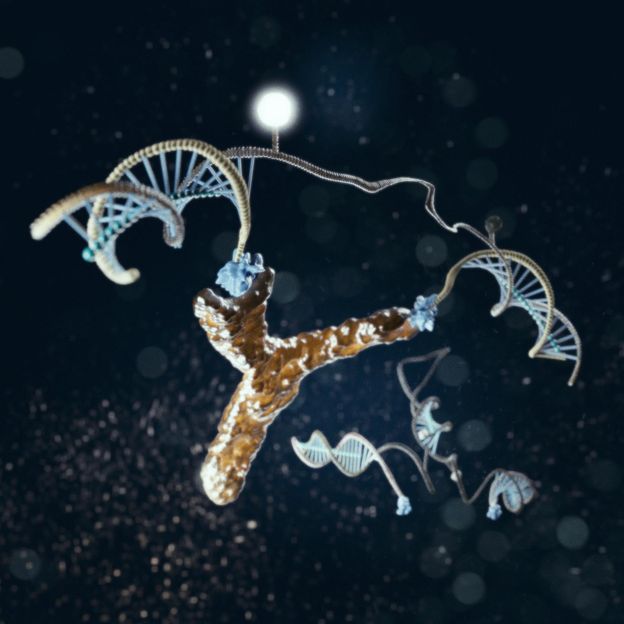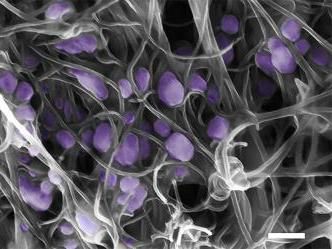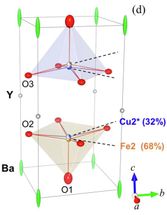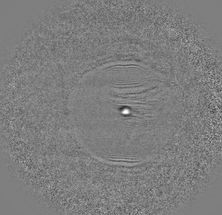Detecting HIV diagnostic antibodies with DNA nanomachines
New research may revolutionize the slow, cumbersome and expensive process of detecting the antibodies that can help with the diagnosis of infectious and auto-immune diseases such as rheumatoid arthritis and HIV. An international team of researchers have designed and synthetized a nanometer-scale DNA "machine" whose customized modifications enable it to recognize a specific target antibody. Their new approach promises to support the development of rapid, low-cost antibody detection at the point-of-care, eliminating the treatment initiation delays and increasing healthcare costs associated with current techniques.

New research may revolutionize the slow, cumbersome and expensive process of detecting the antibodies that can help with the diagnosis of infectious and auto-immune diseases such as rheumatoid arthritis and HIV. An international team of researchers have designed and synthesized a nanometer-scale DNA "machine" whose customized modifications enable it to recognize a specific target antibody. Their new approach, which they described this month in Angewandte Chemie, promises to support the development of rapid, low-cost antibody detection at the point-of-care, eliminating the treatment initiation delays and increasing healthcare costs associated with current techniques. The light-generating DNA antibody detecting nanomachine is illustrated here in action, bound to an antibody.
Marco Tripodi
The binding of the antibody to the DNA machine causes a structural change (or switch), which generates a light signal. The sensor does not need to be chemically activated and is rapid - acting within five minutes - enabling the targeted antibodies to be easily detected, even in complex clinical samples such as blood serum.
"One of the advantages of our approach is that it is highly versatile," said Prof. Francesco Ricci, of the University of Rome, Tor Vergata, senior co-author of the study. "This DNA nanomachine can be in fact custom-modified so that it can detect a huge range of antibodies, this makes our platform adaptable for many different diseases".
"Our modular platform provides significant advantages over existing methods for the detection of antibodies," added Prof. Vallée-Bélisle of the University of Montreal, the other senior co-author of the paper. "It is rapid, does not require reagent chemicals, and may prove to be useful in a range of different applications such as point-of-care diagnostics and bioimaging".
"Another nice feature of our this platform is its low-cost," said Prof. Kevin Plaxco of the University of California, Santa Barbara. "The materials needed for one assay cost about 15 cents, making our approach very competitive in comparison with other quantitative approaches."
"We are excited by these preliminary results, but we are looking forward to improve our sensing platform even more" said Simona Ranallo, a PhD student in the group of Prof. Ricci at the University of Rome and first-author of the paper. "For example, we could adapt our platform so that the signal of the nanoswitch may be read using a mobile phone. This will make our approach really available to anyone! We are working on this idea and we would like to start involving diagnostic companies."
Original publication
Other news from the department science
Most read news
More news from our other portals
See the theme worlds for related content
Topic world Antibodies
Antibodies are specialized molecules of our immune system that can specifically recognize and neutralize pathogens or foreign substances. Antibody research in biotech and pharma has recognized this natural defense potential and is working intensively to make it therapeutically useful. From monoclonal antibodies used against cancer or autoimmune diseases to antibody-drug conjugates that specifically transport drugs to disease cells - the possibilities are enormous

Topic world Antibodies
Antibodies are specialized molecules of our immune system that can specifically recognize and neutralize pathogens or foreign substances. Antibody research in biotech and pharma has recognized this natural defense potential and is working intensively to make it therapeutically useful. From monoclonal antibodies used against cancer or autoimmune diseases to antibody-drug conjugates that specifically transport drugs to disease cells - the possibilities are enormous






















































